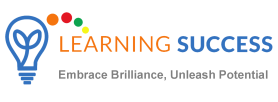Focus on Phonological Awareness and Rapid Naming
In a discussion about Dyslexia, it was highlighted that phonological awareness and rapid naming are crucial areas for parents to focus on when helping their children overcome reading and spelling challenges. Specifically, the transcript emphasized that phonological awareness encompasses phonological memory and rapid naming, with the latter involving the long-term memory processing of language, including letters and sounds. Rapid naming was further explained as relating to the ability to quickly retrieve and process these elements from long-term memory, while phonological memory deals with short-term memory of letters and sounds. For children with Dyslexia, difficulties in these areas can significantly impact their ability to read and spell effectively. By concentrating on improving their child’s phonological awareness and rapid naming skills, parents can directly address the core Dyslexia challenges their child faces, leading to better outcomes in literacy development.

Boosting Reading Skills: Phonological Focus for Dyslexia
As a parent of a child with dyslexia, you understand the unique challenges and frustrations that come with this journey. You have the power to make a significant difference by focusing on enhancing your child’s phonological awareness and rapid naming skills, which are essential for overcoming reading and spelling difficulties. It’s important to recognize that dyslexia is a cognitive challenge in processing written language, not a reflection of your child’s intelligence or effort. By ensuring effective carryover from dyslexia therapy to the classroom, you can empower your child to succeed in school and beyond.
Understanding Dyslexia: A Cognitive Processing Challenge
In a discussion about dyslexia, it was explained that this condition is a neurological disorder characterized by an inability to process written language effectively, efficiently, and accurately. Specifically, it was noted that dyslexia is a language-based learning disability, which means that individuals with dyslexia struggle with the cognitive processing of written text. For example, a child with dyslexia might find it challenging to recognize words on a page, leading to difficulties in reading fluency and comprehension. This insight into the cognitive nature of dyslexia highlights that the condition is not related to a lack of intelligence or effort on the part of the child. For parents, understanding that dyslexia is a processing difficulty can help them provide targeted support and reduce frustration, as they recognize that their child’s struggles with reading are due to the specific challenges posed by dyslexia.
Dyslexia is really a cognitive difficulty in processing written language effectively, efficiently, accurately. It’s not brain damage, it’s not anything wrong with the brain.
"
“Ensuring Therapy Skills Transfer to Classroom”
In discussions about Dyslexia, it was shared that while children may excel in dyslexia therapy sessions, this success does not always carry over to their classroom performance. Specifically, the transcript highlighted that “We can give therapy and give it really well… But then there has to be the carryover, right? And sometimes what can happen, we do the therapy, they look great in the therapy… But then they’re not performing in the classroom with their grade level stuff, right?” This indicates a common challenge for students with Dyslexia, where the skills learned in a controlled therapeutic environment may not be effectively applied in the broader, more demanding school setting. For instance, a child might master decoding techniques during therapy but struggle to apply these skills when reading complex texts in class. This insight underscores the importance for parents of children with Dyslexia to work closely with educators to ensure that the strategies and skills developed in therapy are integrated and reinforced in the classroom environment.
Key Takeaways:
Understanding Dyslexia: Dyslexia is a neurological condition that affects the processing of written language. It is not related to brain damage or reversing letters, but rather an inability to effectively process letters and sounds, impacting reading, spelling, and writing skills. Parents should recognize that dyslexia is a language-based learning disability that requires specific interventions to address.
Importance of Early Intervention: Early intervention is crucial due to the brain's plasticity at a younger age. Research shows that starting dyslexia therapy early can help form necessary neural pathways as the child's brain develops. Parents should seek out dyslexia therapy as soon as possible to maximize the potential for progress and success in reading and writing.
Multi-Sensory Approach in Therapy: Dyslexia therapy should be multi-sensory, involving touch, sound, and sight to engage different learning pathways. This approach, often based on the Orton-Gillingham method, is structured, systematic, and research-based. Parents should ensure that the therapy their child receives follows these principles to effectively support their learning needs.
Practical Strategies for Dyslexic Children
For parents of children with dyslexia, incorporating practical strategies into daily life can make a significant difference. Encourage your child to use audiobooks alongside traditional reading to reinforce comprehension and reduce frustration. Implement multisensory learning techniques, such as tracing letters in sand or using clay to form words, which can help solidify their understanding of language. Create a consistent routine for homework that includes short breaks to prevent overwhelm, and consider using graphic organizers to help with planning and organizing thoughts. For example, when reading together, point out and discuss the structure of sentences to enhance their awareness of language patterns. A Dyslexia Test can provide valuable insights into your child’s specific needs. These steps can help your child build confidence and improve their learning experience.
We can give therapy and give it really well… but then there has to be the carryover… they can master it all, but then they’re not performing in the classroom with their grade level stuff.
"“Fostering Success in Dyslexic Children”
For parents of children with dyslexia, it’s important to understand the long-term benefits and positive outcomes that come from applying effective dyslexia approaches. With the right support and strategies, including guidance from a Dyslexia Tutor, children with dyslexia can develop into confident, successful adults who often excel in creative and problem-solving fields. These individuals frequently develop strong resilience and unique perspectives that set them apart in their careers and personal lives. It’s encouraging to know that many dyslexic adults attribute their success to the skills and coping mechanisms they learned early on. While the journey may have its challenges, parents should remain hopeful and realistic, knowing that their efforts in supporting their child’s dyslexia can lead to a bright and fulfilling future.
Empower your child’s journey with dyslexia by enhancing their phonological awareness and rapid naming skills. Explore the Dyslexia Bundle for targeted support and strategies to help them succeed in school and beyond.

